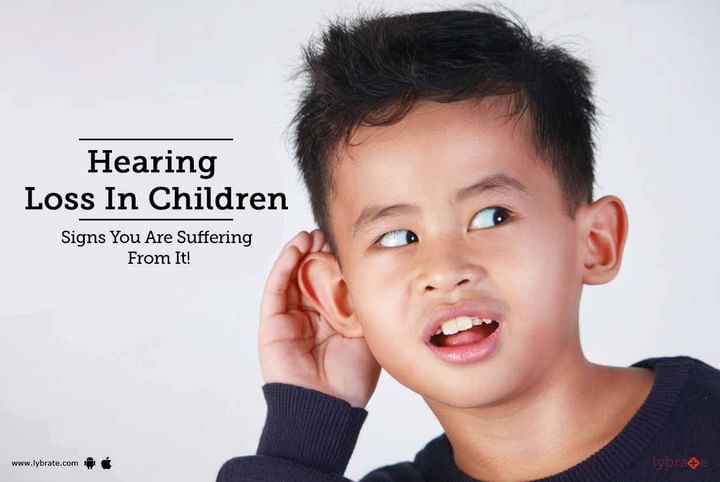Hearing Loss In Children - Signs You Are Suffering From It!
While it is sheer joy for a parent to see his/her child respond to questions and discussions, some children may not be able to do so, as they cannot hear what the parent is saying or asking. This condition of hearing loss can be either seen at birth (congenital) or it may develop after a few years (acquired). While it is difficult identifying hearing loss before 6 months of age, earlier detection can be extremely helpful in terms of improving the prognosis. Though not common, congenital hearing loss affects about 1.4 per 1000 births, while acquired loss affects about 5 per 1000 births.
Causes:
- Congenital:
- Premature birth
- Complications at birth including herpes infections
- Maternal diabetes
- Use of medications which are toxic to the ear (NSAIDs for example)
- Heredity
- Acquired:
- Perforation of the eardrum
- Infections like meningitis or mumps
- Serious head injury
- Constant exposure to loud noise
- Recurrent middle ear infections
- Severe trauma to the middle ear (as a result of head injury)
Signs to identify hearing loss:
- Takes time to respond to your call often
- Repeatedly asks you to repeat what you just said
- Tries to keep the ear closer to the source of the sound, either people or things
- Asks for the volume of TV and music to be higher than normal
- The child talks louder to be clear and understood
- The teacher at school complains about lack of attention
- Appears to be not paying attention to what said, and says, “didn’t hear you”
- Appears to lip-read by looking at the lips intently to see what you said
- Could have ear pains or ringing in the ears
- Reluctant to use phone or strains to hear over the phone
Treatment:
Before proceeding to treatment, the first step is to confirm hearing loss. A thorough physical exam and audiogram can help identify the reason for the hearing loss, so treatment can be planned accordingly.
In some children, severe wax buildup and middle ear infections can also cause hearing loss. All it requires is clearing of wax and a course of infection treatment to restore hearing. With medical advances, tests which are painless and non-invasive can be done in children as young as 6 months to confirm hearing loss.
- Hearing aids: With aesthetics being a major concern, there are discreet devices which can be completely hidden. Even severe hearing loss can be managed with these.
- Cochlear implant: Where there is a nervous problem, cochlear implants are used.
- Speech therapy: For kids who have had a delay in picking up speech and language, additional speech therapy may be required.
Confirmation of hearing loss, is done by audiologist & speech language pathologist who are specialized in dealing with hearing and speech related problems and their management. So, its always advised to follow the specialist. In case you have a concern or query you can always consult an expert & get answers to your questions!



+1.svg)
